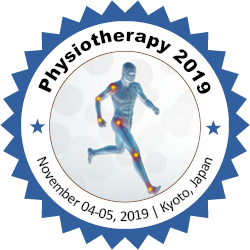Airin Sangma
Faculty of Allied Health Sciences, Chulalongkorn University
Title: Thai version of the Moorong Self-Efficacy Scale: psychometric study among individuals with spinal cord injury
Biography
Biography: Airin Sangma
Abstract
Self-efficacy can be measured by different scales. Many measurements were developed to assess self-efficacy. Moorong Self-Efficacy Scale (MSES) was developed and validated to assess self-efficacy in individuals with spinal cord injury (SCI). Purpose: To translate and cross-cultural adaptation of the Moorong Self-Efficacy Scale (MSES) in Thai individuals with SCI and investigate psychometric properties of the Thai version of the MSES (Thai MSES) for use in individuals with SCI. Methods: Six stages of cross-cultural adaption were conducted as follows: (1) forward translation, (2) reconciliation, (3) backward translation, (4) independent reviews, (5) finalization process, and (6) testing of translations. Sixteen items were translated into Thai. Thai translated version was tested by 23 individuals with SCI. Data was analyzed by qualitative analysis. The psychometric properties (content validity, convergent validity, test-retest reliability, internal consistency, SEM, and MDC) of the Thai MSES was examined. Results: for translations and independent reviews, modifications were made at items 2 and 6 and some words were changed to lay language. The percentage of overall acceptable meaning of the Thai translated version was 91% (ranging from 78% to 100%). The content validity index (CVI) of the Thai MSES was 1.00. The Cronbach’s alpha coefï¬cient was 0.921. There was no correlation between Thai MSES score and each domain of Thai SF-36V2. The ICC 2,1 value for total was 0.82, SEM was 7.78 and MDC was 21.57. Conclusions: The MSES was cross-culturally adapted to Thai. Two items were adapted for greater understanding. Its measurement properties demonstrated acceptable internal consistency and good test-retest reliability.

